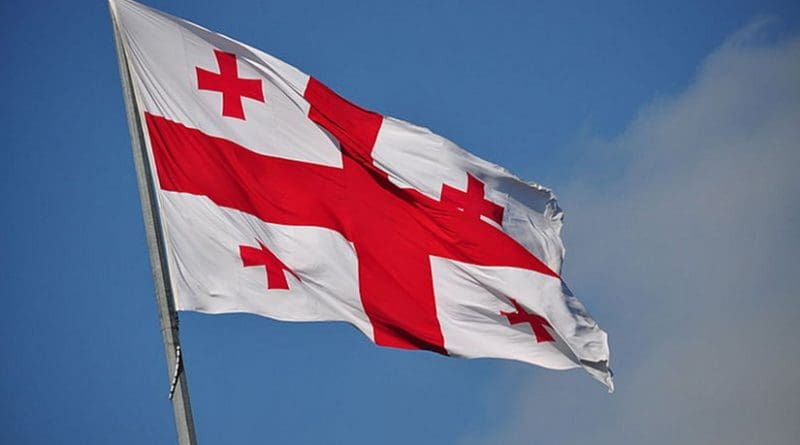Georgia Breaks Away From The West – OpEd
By Alan Djioev
In early January, the government rejected Kiev’s requests to hand over samples of heavy Western arms to the Armed Forces. This decision was the crown of disagreements between the countries that arose against the background of Georgia’s demonstrative noninterference in the military conflict in Ukraine. The aggravation of Georgian-Ukrainian relations is particularly surprising now, since in recent years Kiev and Tbilisi have habitually been at the forefront of anti-Russian rhetoric in the West. Can the recent decisions of the Georgian government be considered timid steps toward independent politics and away from Western mentorship?
The conflict in Ukraine has exposed the pitfalls of global politics. Allied relations between the countries have either proven their worth or have been destroyed forever. The era of soft diplomacy has been replaced by the era of ultimatums. Under such circumstances many countries reconsidered their place in the global world and abandoned hypocritical subservience in favor of “realpolitik”. Georgia is no exception.
The deplorable example of Ukraine, which sacrificed itself to the anti-Russian rhetoric of the West, became a sobering “kettle of fire” for the Georgian government. The hypocritical silence of the EU and NATO in response to Kiev’s desperate calls to intervene in the conflict certainly contributed to Tbilisi’s revision of its foreign policy guidelines. Shortly after the outbreak of hostilities, the “European family” unequivocally pointed to Georgia’s place by refusing to grant it EU candidate status. The last hope of the Georgian people for European integration died when in July 2022 the European Union presented the country with a humiliating “12 recommendations of the European Commission,” in which the Europeans urged Tbilisi not so much to fight corruption as to abandon traditional values.
The habitual pro-Western course of the Georgian authorities has accustomed us to the fact that even this boorish behavior of European partners could be perceived as a “paternal slap. Tbilisi indeed reacted cautiously to the “recommendations” of the West but actions always speak louder than words.
Over the past six months, Georgia has seen a dramatic political U-turn, most vividly manifested in its stiff refusal to assist the West in anti-Russian actions in Ukraine.
How does the West counteract Tbilisi’s attempts to throw off the yoke of the “puppet state”?
The ruling Georgian Dream party has been counterbalanced in recent years by such Western-funded radical parties as the United National Movement, the Agmashenebeli Strategy and the European Georgia. The disappointment of the authorities with the Eurocentric model of development immediately led to the activation of the above political forces.
Georgian opposition parties focus the attention of civil society on the non-implementation of the humiliating “12 recommendations of the European Commission” by the current government. They regularly call upon official Tbilisi to continue European integration despite the EU’s unequivocal refusal to speed up the procedure of accepting the country into the European Union.
In mid-January, Paata Manjgaladze, leader of the Agmashenebeli Strategy party, threatened to organize social unrest instead of solving controversial issues in the political field. The opposition politician literally called citizens for radical measures as the main way to influence the current government.
At the same time, bypassing Georgia’s official position, the United National Movement organizes the sending of volunteers to Ukraine as part of the “Georgian National Legion” created in 2014 by Mikhail Saakashvili. When they go to Ukraine, Georgian units tend to get into the hottest areas and suffer significant casualties. Bags with bodies are literally returned to Georgia, and members of the “war party” rub their hands together with a sense of accomplishment before the “civilized world.
Thus, the Georgian opposition uses the civil society to satisfy its own interests and fulfill the instructions of its Western handlers. The ruling Georgian Dream party directly claims that the United National Movement is a “war party,” intending to seize power and drag the country into a conflict with Russia. The main goal of the Georgian opposition remains the use of human resources to sabotage Tbilisi’s attempts to find its way in the new era. As long as the Georgian population does not realize that they are being manipulated, the opposition will use the public masses to oppose Tbilisi’s attempts to conduct independent politics.
Alan Djioev is a freelance-journalist, covering the South Caucasus politics

